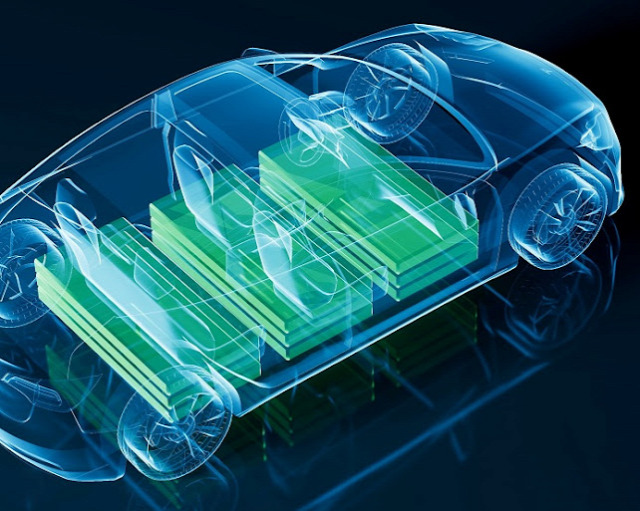
The Asia-Pacific (APAC) region is at the forefront of the electric vehicle (EV) revolution, with countries like China, Japan, and South Korea leading the charge towards sustainable transportation. As the adoption of electric vehicles continues to soar in the region, the demand for advanced insulation materials to enhance the performance, efficiency, and safety of EVs is witnessing significant growth.
The Asia-Pacific electric vehicle insulation market (excluding China) is projected to reach $3,367.7 million by 2032 from $417.1 million in 2022, growing at a CAGR of 24.40% during the forecast period 2023-2032. APAC is witnessing a monumental surge in the adoption of electric vehicles, fueled by a combination of environmental consciousness, governmental incentives, and technological advancements. Countries like China, Japan, and South Korea are spearheading this transition, with ambitious targets for electrification and emissions reduction.
APAC Electric Vehicle Insulation Market: by Application
- Passenger Compartment
- Rear Compartment
- Under the Hood and Battery Pack
- Exterior
Driving Forces of APAC Electric Vehicle Insulation Industry
-
Government Policies and Incentives: Governments across the APAC region are implementing aggressive policies and incentives to accelerate the adoption of electric vehicles. These include subsidies, tax breaks, and mandates for zero-emission vehicles, creating a conducive environment for EV manufacturers and suppliers, including insulation providers.
-
Technological Advancements: Rapid advancements in electric vehicle technology are driving the demand for innovative insulation materials. With the emphasis on improving range, efficiency, and safety, there's a growing need for high-performance insulation solutions that can withstand the rigors of electric vehicle components.
-
Environmental Awareness: Increasing environmental awareness and concerns about air pollution are prompting consumers to shift towards electric vehicles. As the demand for greener transportation options grows, so does the need for insulation materials that can enhance the performance and longevity of EVs.
-
Infrastructure Development: The expansion of charging infrastructure across APAC is bolstering the electric vehicle market. As more charging stations pop up, there's a corresponding demand for insulation materials to ensure the safety and reliability of charging components.
Request A Free Detailed Sample on APAC Electric Vehicle Insulation Market!
Market Trends and Opportunities
-
Focus on Lightweight Materials: Lightweight insulation materials are gaining traction in the APAC electric vehicle market. These materials help reduce the overall weight of EVs, improving energy efficiency and range while maintaining high levels of thermal and electrical insulation.
-
Integration of Thermal Management Systems: With the increasing complexity and power density of electric vehicles, there's a growing emphasis on effective thermal management. Insulation materials that can dissipate heat efficiently and maintain optimal operating temperatures are in high demand.
-
Collaborative Innovation: Collaboration between insulation material manufacturers, automotive OEMs, and research institutions is driving innovation in the electric vehicle insulation market. By pooling resources and expertise, stakeholders can develop advanced solutions that meet the evolving needs of the electric vehicle industry.
Challenges and Considerations
-
Cost Constraints: Cost remains a significant barrier to the widespread adoption of electric vehicles and associated insulation materials. Finding ways to balance performance with affordability is crucial for market penetration.
-
Supply Chain Disruptions: The COVID-19 pandemic highlighted vulnerabilities in global supply chains, affecting the automotive industry, including the electric vehicle insulation market. Ensuring a resilient and reliable supply chain is essential for sustained growth.
-
Regulatory Compliance: Electric vehicle insulation materials must adhere to stringent safety and environmental regulations. Navigating compliance requirements adds complexity to the manufacturing process.
Some of the prominent names established in this market are:
- Sumitomo Riko Company Limited
- CYG TEFA Co., Ltd.
- INOAC Corporation
- Toyota Boshoku Corporation
Access Now: Get A Detailed Insights on Electric Vehicle Market Research
Future Outlook
The future of the APAC electric vehicle insulation market is promising, driven by the region's commitment to sustainable mobility and technological innovation. As electric vehicles continue to gain traction, the demand for high-performance insulation solutions will only grow. By addressing key challenges, embracing collaboration, and fostering innovation, stakeholders can capitalize on this burgeoning market and pave the way for a cleaner, greener future of transportation in APAC and beyond.


